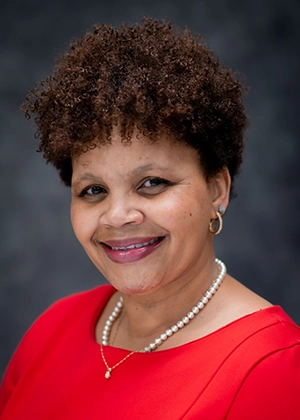“No person in the United States shall, on the basis of sex, be excluded from participation in, be denied the benefits of, or be subjected to discrimination under any education program or activity receiving Federal financial assistance.”
— 20 U.S.C. § 1681 et seq.
Reporting Resources
Overview of Sex Discrimination
The University of North Carolina Greensboro is committed to the principle that educational and employment decisions should be based on an individual’s abilities and qualifications and should not be based on personal characteristics or beliefs that have no relevance to academic ability or to job performance. Accordingly, UNCG supports policies, curricula and co-curricular activities that encourage understanding of and appreciation for all members of its community. UNCG will not tolerate any harassment of or discrimination against persons. UNCG is committed to equal opportunity in education and employment for all persons and will not tolerate any discrimination against or harassment of persons on the basis of race, color, religion, sex, sexual orientation, gender identity, national origin, political affiliation, genetic information, veteran status, disabling condition, or age.
Title IX of the Education Amendments of 1972 and certain other federal and state laws prohibit discrimination on these bases in education programs and activities operated by UNCG. The University complies with the requirements of Title IX of the Education Amendments of 1972, 20 U.S.C. Sec. 1681, et seq., and subsequent regulations, which prohibits discrimination on the basis of sex in all programs and activities receiving federal financial assistance. UNCG receives such assistance and complies with this law and its implementation of regulation at 34 C.F.R. Part 106.
To ensure compliance with Title IX, the Chancellor of the University has designated the Title IX Coordinator as the primary contact responsible for developing, adopting and/or assuring the dissemination of the University’s non-discrimination policy and for making the policy available to the University community.
The information found in the following pages is meant to help our community understand the rights and responsibilities of all community members. Inquiries concerning the application of these laws to programs and activities of University of North Carolina Greensboro or any individual who believes they have been discriminated against in violation of the University’s nondiscrimination policy, including sexual harassment or gender discrimination, or who has witnessed discrimination against another, may obtain information and assistance regarding the University’s policies and responsive processes from the resources herein.
Procedural Options
All alleged violations of sexual misconduct, sexual harassment, gender discrimination, domestic violence, dating violence, and stalking may be reported to the Title IX Office and/ or University Police. All non-confidential University employees are encouraged to report disclosures directly to the Title IX Office. Reports received by confidential employees should not be reported unless the Complainant grants permission to the confidential employee. Any employees with questions of whether they are considered a confidential employee should refer to the Reporting Obligations page of this site or contact the Title IX Office.
If preferred, Complainants and reporting parties may submit an online report.
Title IX Office
239 Elliott University Center
Phone: 336.256.0422
Email: [email protected]
Dean of Students
210 Elliott University Center
Phone: 336.334.5190
Email: [email protected]
UNCG Police
1200 W. Gate City Blvd.
Emergency: 336.334.4444
Non- Emergency: 336.334.5963
Anonymous Report to Law Enforcement
UNCG Police recognize that there may be a time an individual wishes to report some possible illegal activity anywhere on or near UNCG Campus without disclosing their identity. To facilitate the reporting of possible illegal activity to law enforcement anonymously, please complete an online report.
Meeting With Complainant
Upon receipt of notice of alleged prohibited conduct, the Title IX Office will contact the Complainant. During the meeting, the Complainant will be provided:
- A general understanding of University policy.
- Support resources and/ or immediate interventions available.
- Assistance and support that may be appropriate concerning academic, university housing, and/ or University employment arrangements.
- University conduct process and steps for resolution.
A Complainant can elect to pursue:
- A Formal Complaint and Grievance Process
- An Informal Resolution
- Supportive Measures Only
Confidential Support
DOES NOT CONSTITUTE REPORT TO THE UNIVERSITY.
Victims of sexual misconduct, sexual harassment, gender discrimination, domestic violence, dating violence, and stalking are welcome to confidentially seek supportive services from UNCG. Any disclosure of an incident while seeking confidential services will not constitute a report to the University and the University will not investigate or respond.
Confidential supportive services may be found:
Campus Violence Response Center
https://cvrc.uncg.edu/
Call: 336.334.9839
Visit: Ground Floor, Gove Student Health Services
Medical Clinic & Counseling Center
https://shs.uncg.edu/
Call: 336.334.5340
Visit: First & Second floors, Gove Student Health Services

Role of the Title IX Coordinator
The Title IX Coordinator is charged with coordinating the University’s efforts to comply with the University’s responsibilities under Title IX. The Coordinator will ensure the University notifies applicants for admission and employment, students, parents or legal guardians of elementary and secondary school students, and employees of the name and title, office address, electronic mailing address, and telephone number of the employee designated as the Title IX Coordinator. Any person may report sex discrimination, including sexual harassment (whether or not the person reporting is the person alleged to be the victim of conduct that could constitute sex discrimination or sexual harassment), in person, by mail, by telephone, or by electronic mail, using the contact information listed for the Title IX Coordinator to the right or by any other means that results in the Title IX Coordinator receiving the person’s verbal or written report. Such a report may be made at any time (including during non-business hours) by using the telephone number or electronic mail address, or by mail to the office address, listed for the Title IX Coordinator. Such coordination may include delegating reporting and response tasks to appropriate University designees such as the Title IX Investigator and Dean of Students Office.